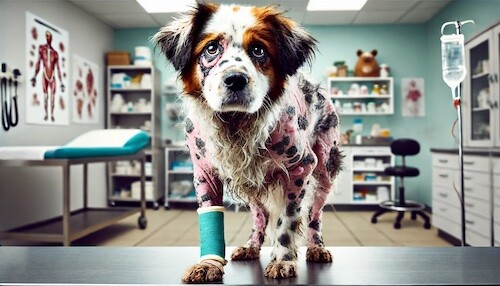The 10 Dog Breeds With The Most Health Problems

Dogs are cherished for their unwavering loyalty and affection, but it’s important to recognize that some breeds are more susceptible to health issues than others. These problems can range from dental issues to hip dysplasia, and understanding which breeds are at higher risk can be crucial for any prospective pet owner. Being informed about these potential health concerns helps you make better decisions and ensures you can provide the best possible care for your canine companion.
Read More: 15 Dog Breeds With The Highest Cancer Rates
Selecting a dog breed should involve considering not just their temperament and activity level but also their predisposition to certain health conditions. Awareness of these issues allows for proactive health management, such as regular veterinary check-ups, proper nutrition, and tailored exercise routines. This approach can significantly enhance the quality of life and longevity of your pet.
In this guide, we delve into the dog breeds that are known to have the most health problems. By understanding these issues, you can be better prepared to meet the specific health needs of your chosen breed, ensuring a happier and healthier life for your furry friend. Here are the 10 dog breeds with the most health problems, along with tips on how to manage their care effectively.
2Rottweiler

Rottweilers are generally a robust breed, but like all purebred dogs, they can be prone to certain health conditions. Hip and elbow dysplasia are common issues, resulting from improper joint formation that leads to pain and arthritis. Regular exercise, maintaining a healthy weight, and joint supplements can help manage these conditions.
Progressive retinal atrophy (PRA) is another concern, causing gradual vision loss due to retinal degeneration. Regular eye check-ups are crucial for early detection and management. Osteochondritis dissecans (OCD), a condition where cartilage does not develop properly, can cause joint pain and lameness. Ensuring a diet rich in essential nutrients and avoiding high-impact activities during their growth phase can help reduce the risk of OCD.
Bloat, a life-threatening condition where the stomach fills with gas and twists, is also common in Rottweilers. Feeding smaller, more frequent meals and avoiding vigorous exercise immediately after eating can help prevent this condition. Immediate veterinary care is essential if bloat is suspected, as it can be fatal if not treated promptly.
Annual health screenings, including hip and elbow evaluations and eye exams, can help detect issues early. A balanced diet, regular exercise, and mental stimulation are vital to keeping Rottweilers healthy and happy. By being proactive about their health, Rottweiler owners can ensure their pets enjoy a long, active life.
